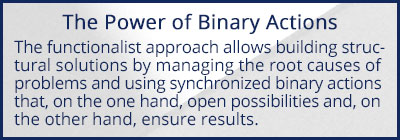The Unicist Research Institute
Pioneers in Complexity Science Research since 1976




Unicist Research Groups in Healthcare
These Research Groups are groups to develop and implement technologies in the healthcare business. The objective of these groups is to develop the conceptual design of the complex aspects of healthcare processes or to develop possible future scenarios of the healthcare business and their consequences. These groups are also responsible for developing “concept-prototypes” of business processes in the healthcare industry. The researches in life sciences and health provided the necessary structural fundamentals that need to be managed to integrate health with healthcare in order to improve patient orientation and health. They are integrated by teams that include physicians and managers who have notorious interest in solving the complexity of healthcare and dealing with future scenarios.

The Unicist System for Conceptual Design provides the concepts of the business functions and their fundamentals to develop the conceptual design of business processes.
They are professional groups that were developed to solve complex problems using the unicist technologies. They use the unicist logical approach to deal with complex problems.
The Research Groups are integrated by members of the Unicist Confederation and members of the sponsors or clients. They produce solutions in a predefined timeframe. They are groups where the conceptual knowledge of complex adaptive systems is transformed into operational solutions.
Their Methodology
The framework of the organization of these groups is given by:
- The use of the Business Emulator
- The use of prototypers to start real actions immediately.
- The development of the prototype to manage the solutions. The development is based on the “recreation” of the prototypers.
- The use of the conceptual design provided by The Unicist Research Institute.
They are integrated by:
- At least one member who has the fundamental knowledge of the activity.
- Two members who have a solid technical knowledge.
- Several members with empirical knowledge of the activity.
The Leaders of the Groups
I) The Coordinator, who is responsible for guiding the group towards the objectives that have been defined.
The coordinator has the full responsibility for the diagnoses and for achieving the results that have been defined as being possible to be achieved. The participants of the think tank also have full responsibility for the results after they agreed that such results are possible.
II) The “Fallacy-Shooter”, who is responsible for assuring the quality of the foundations and justifications in the decision making processes.
The “Fallacy-Shooter” is the person responsible for guiding the action-reflection-action process in order to improve the accuracy of the diagnoses and of the work processes. This guidance is based on the development of destructive tests to confirm the limits of the validity of knowledge and non-destructive tests to validate solutions.
III) The “Ombudsman”, who is responsible for monitoring the value generation of the R&D processes.
The “Ombudsman” is responsible for monitoring that the proposals respond to the functional needs of the solutions that are required; she/he guarantees results. The ombudsman represents the “user” and is responsible for generating value to the environment.
The Unicist Standard
A Unicist Research Group follows Unicist Standards, to deal with complex adaptive systems, among them:
- For Systemic Problem Solving
- For the Research of Adaptive Systems
- For Strategic Thinking
- For Pilot Testing
- For Change Management
- For the Design of Adaptive Systems
- For Pilot Test based Reflection Processes
- For the Building of Reliable Knowledge
Translate
The Unicist Paradigm Shift in Sciences
The unicist approach to complexity emulates nature to deal with natural or artificial complex adaptive systems. Such emulation is based on the discovery of the ontogenetic intelligence of nature that regulates the evolution of living beings and natural entities.
The Unicist Theory explains the dynamics and evolution of living beings and complex adaptive entities. It substituted empiricism by a pragmatic, structuralist and functionalist approach and replaced knowledge falsification processes with destructive testing processes.
The four pillars of the paradigm shift in science are:
- 1) The unicist theory, which explains the dynamics and evolution of living beings and complex adaptive entities.
- 2) The unicist theory of evolution, which allows forecasting future scenarios.
- 3) The epistemological structure of complexity sciences, which allows managing the complex aspects of reality.
- 4) The unicist theory of the unified field in nature, which allows managing the unified field of complex adaptive systems.
Country Archetypes Developed
• Algeria • Argentina • Australia • Austria • Belarus • Belgium • Bolivia • Brazil • Cambodia • Canada • Chile • China • Colombia • Costa Rica • Croatia • Cuba • Czech Republic • Denmark • Ecuador • Egypt • Finland • France • Georgia • Germany • Honduras • Hungary • India • Iran • Iraq • Ireland • Israel • Italy • Japan • Jordan • Libya • Malaysia • Mexico • Morocco • Netherlands • New Zealand • Nicaragua • Norway • Pakistan • Panama • Paraguay • Peru • Philippines • Poland • Portugal • Romania • Russia • Saudi Arabia • Serbia • Singapore • Slovakia • South Africa • Spain • Sweden • Switzerland • Syria • Thailand • Tunisia • Turkey • Ukraine • United Arab Emirates • United Kingdom • United States • Uruguay • Venezuela • Vietnam
Main Markets (Generic)
• Automobile • Food • Mass consumption • Financial • Insurance • Sports and social institutions • Information Technology (IT) • High-Tech • Knowledge Businesses • Communications • Perishable goods • Mass media • Direct sales • Industrial commodities • Agribusiness • Healthcare • Pharmaceutical • Oil and Gas • Chemical • Paints • Fashion • Education • Services • Commerce and distribution • Mining • Timber • Apparel • Passenger transportation –land, sea and air • Tourism • Cargo transportation • Professional services • e-market • Entertainment and show-business • Advertising • Gastronomic • Hospitality • Credit card • Real estate • Fishing • Publishing • Industrial Equipment • Construction and Engineering • Bike, motorbike, scooter and moped • Sporting goods
Copyright© 2024
The Unicist Research Institute

























